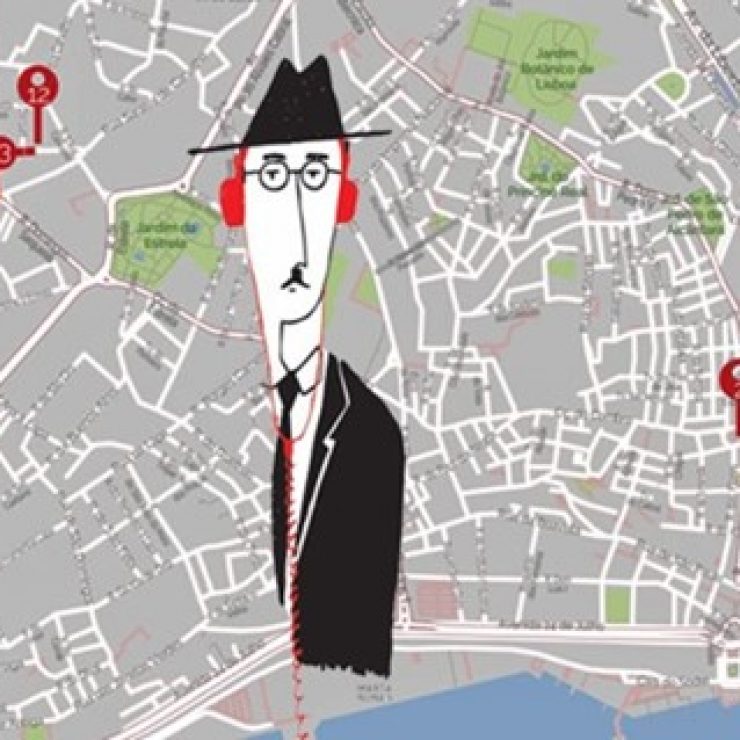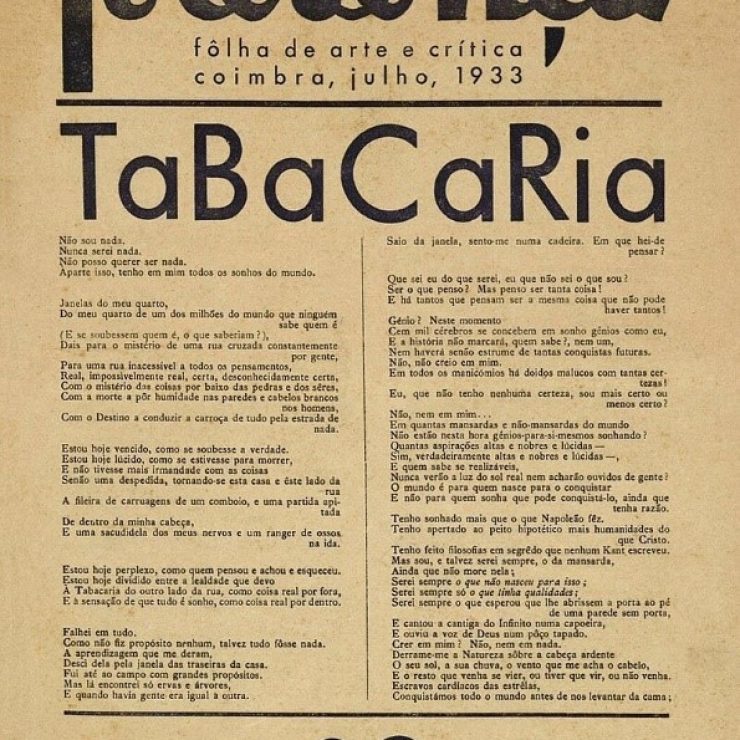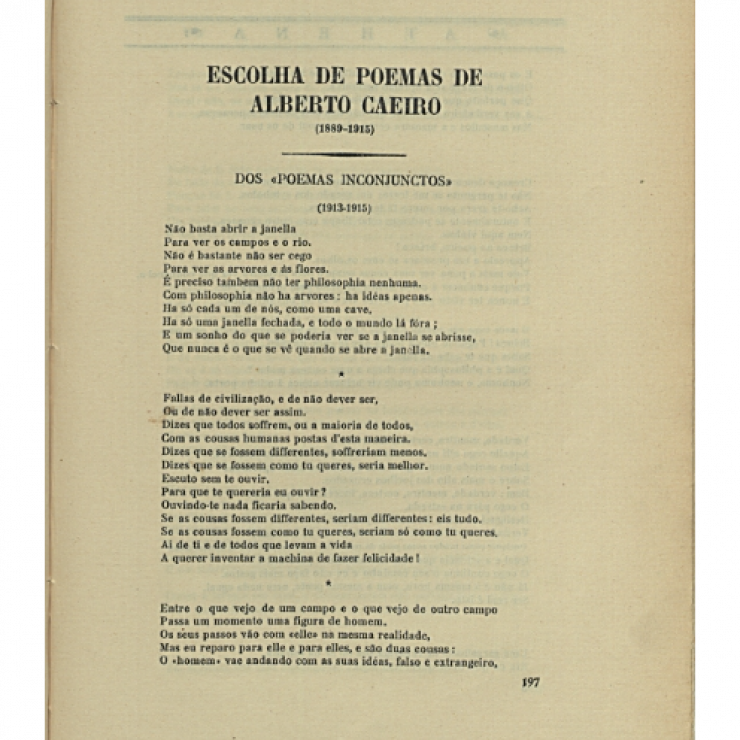It is often said and underlined that the surname Pessoa, originating in the Latin word persona («mask»), was fatally appropriated by the poet who received such name – Fernando Pessoa. Universally known as the author of the heteronyms, the poet from Lisbon stands in the history of literature as the demiurge of numerous fictitious authors that populate and sign their own work. Pessoa, therefore, is and will be the poet of the masks. Nomem omem, as the Romans themselves said: the name is an omen.
We use this interesting and well-known fact to introduce a topic of Pessoan poetry, particularly fit to be discussed in the winter period during which, particularly in the West, the celebration of the masks takes place. We are obviously referring to Carnival, to which Pessoa dedicated a few verses, mainly from the heteronym Álvaro de Campos and some orthonym production. It does not come as a surprise that, given his last name and his tendency towards depersonalization and fiction, the Portuguese writer has integrated the imagery and the idea of Carnival into his poems.
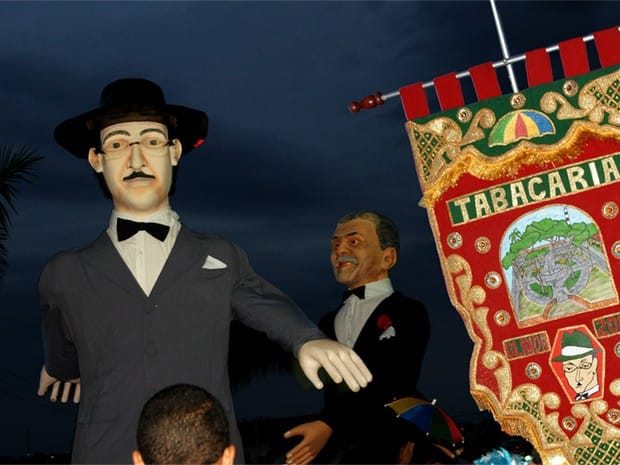
Regarding the ortonym production, there aren’t many verses dedicated to the Carnival. These are, however, some of the most meaningful ones, at least for those interested in the more spiritual side of Pessoa’s work and thought. There is a poem, written in 1930, in which the orthonym confronts and crosses the “Carnival” of his “unreal soul”, in a metaphysical disquiet that is resolved in the loving encounter with God:
But how often in disbelief
Of the being unable to subsist
With which, in the Carnival
Of my unreal soul,
I would wear what I would feel
I saw who was who I am not
And what I left unspoken
Clouded my eyes…
Then, alone with me,
Without being my friend,
A child on heaven’s door,
I place my hand on God’s hand.
And in the dark mystery
I felt the ancient hand
Guide me and I rose, certain,
As those who have been given bread.
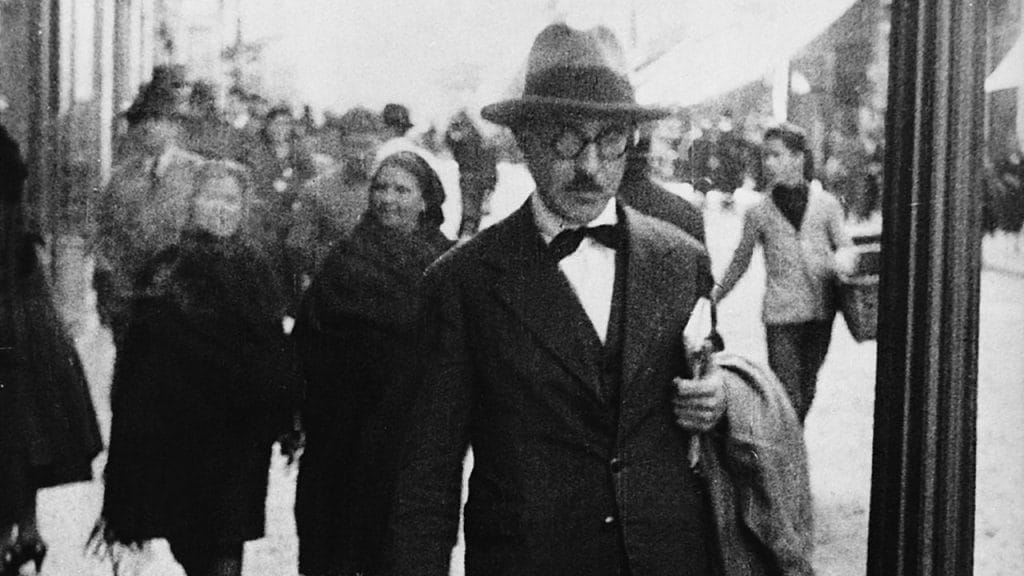
As for Álvaro de Campos, the cosmopolitan engineer will have had dedicated some particular attention to the verses he name “Carnival”, since these are mentioned by the author himself in a prose text dedicated to Alberto Caeiro, often considered to be among the first to have been written by the poet from Tavira. Here are some of them:
Life is a tremendous drunkenness.
From life, I never get another impression.
I walk the streets and I have a sensation
Of a carnival filled with colour and dustiness…
In Campos, the theme of the Carnival is associated, quite clearly and manifestly, to the literary image of the mask, i.e., the ancient and ever current question “Who am I?”, quite characteristic to Pessoa. Let’s read these verses:
That fake and sake similarity
Between who I think I am and how I am.
I am the mask who is a child once again,
But I, adult, recognise where I am,
This is not the Carnival, neither am I.
I feel like sleeping, and I walk.
Irony and metaphysics are intertwined in another poem by Campos:
I am dead, of boredom too
I, laughingly, bump my head on the stars
As if I bumped it on a children’s hoop.
Strewn, in the carnival, across the hall,
I shall wear stars; with the sun as a bowl hat
In the great Carnival between God and life.
In the work of the heteronym from the Algarve, there are plenty of passages that, albeit brief and incisive, easily integrate the vast human and digital heritage of quotes that describe, in a genial and enigmatic manner, the restless – and sometimes paradoxical – human existence, as this one: “Every moment is an immense carnival”.
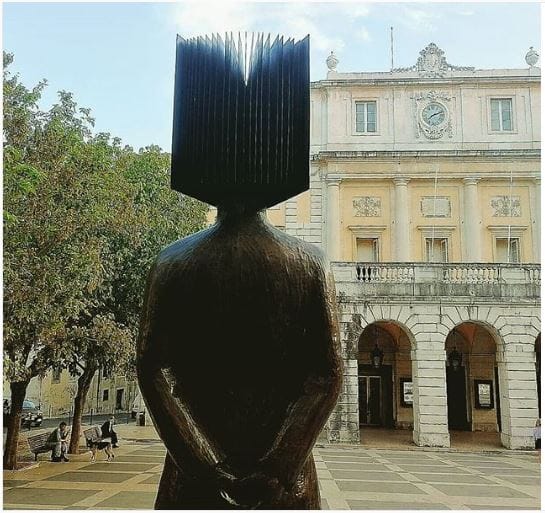
Carnival is also evoked by Campos as an image that describes one of the great masters of the poetry of this heteronym and of Pessoa in general. We are referring to American author Walt Whitman, to whom the engineer dedicates the poem “Salute to Walt Whitman”, written on 11th June 1915, a few months after the publication of Orpheu magazine. Campos honours and salutes Whitman with:
Singer of fierce and gentle brotherhood with everything,
Great epidemic democrat, contiguous to all in body and soul,
Carnival of every action, bacchanal of all intentions.
And the loneliness of the poet emerges, within that sadness that, paradoxically, is so typical, for so many, during this supposedly cheerful celebration, but in fact mysterious and, in some aspects, disconcerting:
It is Carnival and the streets are full
Of people who preserve sensations,
I have intentions, thought, ideas,
But I cannot have a mask, nor bread.
These people are the same, I’m diverse –
Even among poets, I wouldn’t be accepted.
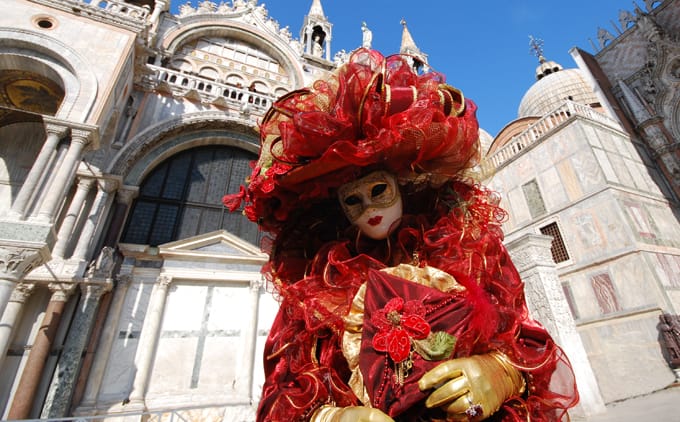
It doesn’t come as a surprise that Álvaro de Campos was the most prolific “author”, within the Pessoan coterie, as far as references to Carnival go. A celebration of exuberance, with ancestral roots in ancient civilizations, the Carnival was absorbed into the traditions of Catholic countries. This syncretism, both “sad and cheerful” as the Lisbon of the poem “Lisbon Revisited (1926)”, is an extreme expression of Campos’ sensationalism, so well defined in the verses of his famous poem:
Feel everything in all manners,
Live everything from everywhere,
Be the same thing in every possible way at the same time,
Accomplish, within oneself, all humanity in every moment
In a single moment, diffuse, profuse, complete and distant.
In a Venice of the soul, we have no doubt that Campos is still celebrating the Carnival “from everywhere”, parading and dancing and secretly growing gloomier with joy and future.
Fabrizio Boscaglia
_
Discover Lisboa & Pessoa, from Lisboa Pessoa Hotel, a themed boutique hotel inspired by Fernando Pessoa.
_
Images credits:
Bloco Tabacaria no Carnaval de Salgueiro (Foto: Divulgação / Prefeitura de Salgueiro)
Venezia – Maschera in Piazza San Marco (Foto: Massimo Teló)

